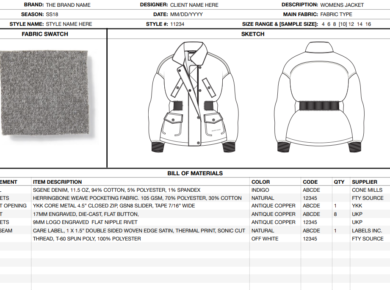If your company is based around products, not services, you will want to build strong connections with manufacturers to bring those products to physical, tangible life. But it is imperative to do the right amount of homework and check all the right boxes. A manufacturer who isn’t on the same page as you or who isn’t as reliable as you require could well break the business you’ve tried to build before it even takes off!
To ensure you have taken all the necessary precautions, here is Sourcing Playground’s checklist for working with manufacturers.
Have You Established Clear and Reliable Communication Channels?
Communication is so often the thing that makes or breaks a business – regardless of the sector or industry! So, when working with manufacturers, you have to establish concrete lines of communication across phone, email and face-to-face. You should try to do this from the beginning – it will not only demonstrate enthusiasm, but professionalism on your part. It pays to take note of the names of people you speak to, as well as the best or most reliable way to get hold of your contacts. If they are unresponsive during the early stages of your business relationship, chances are they aren’t the manufacturer for you.
Have You Perfected Your Presentation For Your Next Idea?

In the spirit of good communication, when it comes to presenting your new idea to a manufacturer, make sure you are doing so as an industry professional. As opposed to how you may have rehearsed to friends or relatives, i.e. in layman’s terms. Be technical but concise, using the right kind of language and telling the idea’s story from start to finish. There is no room for assumptions or even educated guesses to be made on either side – precision is the key here! So, make sure there is precision in your presentation.
Have You Set a Deadline and Are They Committed To It?
Setting a specific timeline for delivery of a product should be among your top priorities. Especially if there is something like an event that you are hoping to make a big announcement at. Commitment to a deadline, or the lack thereof, can show whether or not the relationship with a manufacturer is going to work in the long run. A manufacturer that is on-schedule every time you call is a keeper; one that needs reminding of the exact deadline date… perhaps not.
Are You Prepared For Their Feedback?
Many find it difficult to see flaws in their own work. However, it is in the manufacturers’ interests (and yours, in the long run) to point out where issues may arise off the back of your designs or ideas. Be prepared to take this feedback and revise the product. Don’t take it the wrong way and sever the connection if you haven’t heard what you wanted. An experienced manufacturer will be able to suggest ways to overcome the potential flaws they pointed out – if this is the case, take their advice.
Have You Asked All The Questions You Can?

In business, we think there is no such thing as a stupid question. There’s a fine line between using common sense and making assumptions, and as we said earlier in the article, there’s no room for assumptions in this game. If there is something you need to know from your manufacturer, just bite the bullet and ask them. It may eliminate miscommunication risks further down the line and even strengthen your relationship.
Do You Understand The Money?
We are not talking about a budget here, don’t worry. This point is about what the pros call “unit economics”. In other words, it is establishing and understanding the retail and wholesale revenues from your product, as well as the costs involved. It sounds dull, but any manufacturer worth their salt will ask about these things. It’s best to know the answers from the start.
If You Are Scaling, Can the Manufacturer Keep Up?
Starting small is fine, but if your product takes off and the demand is high, you will want a manufacturer who can deliver on the same scale. Of course you want to be optimistic about your product, so it’s fine to ask, “Do you think you will be able to scale production with us if the opportunity arises?” That shows that you are aiming high and thinking about the future, without making any false promises. It’s up to the manufacturer if they think they could keep up with a higher demand.
We hope this has been useful – Happy Sourcing!






